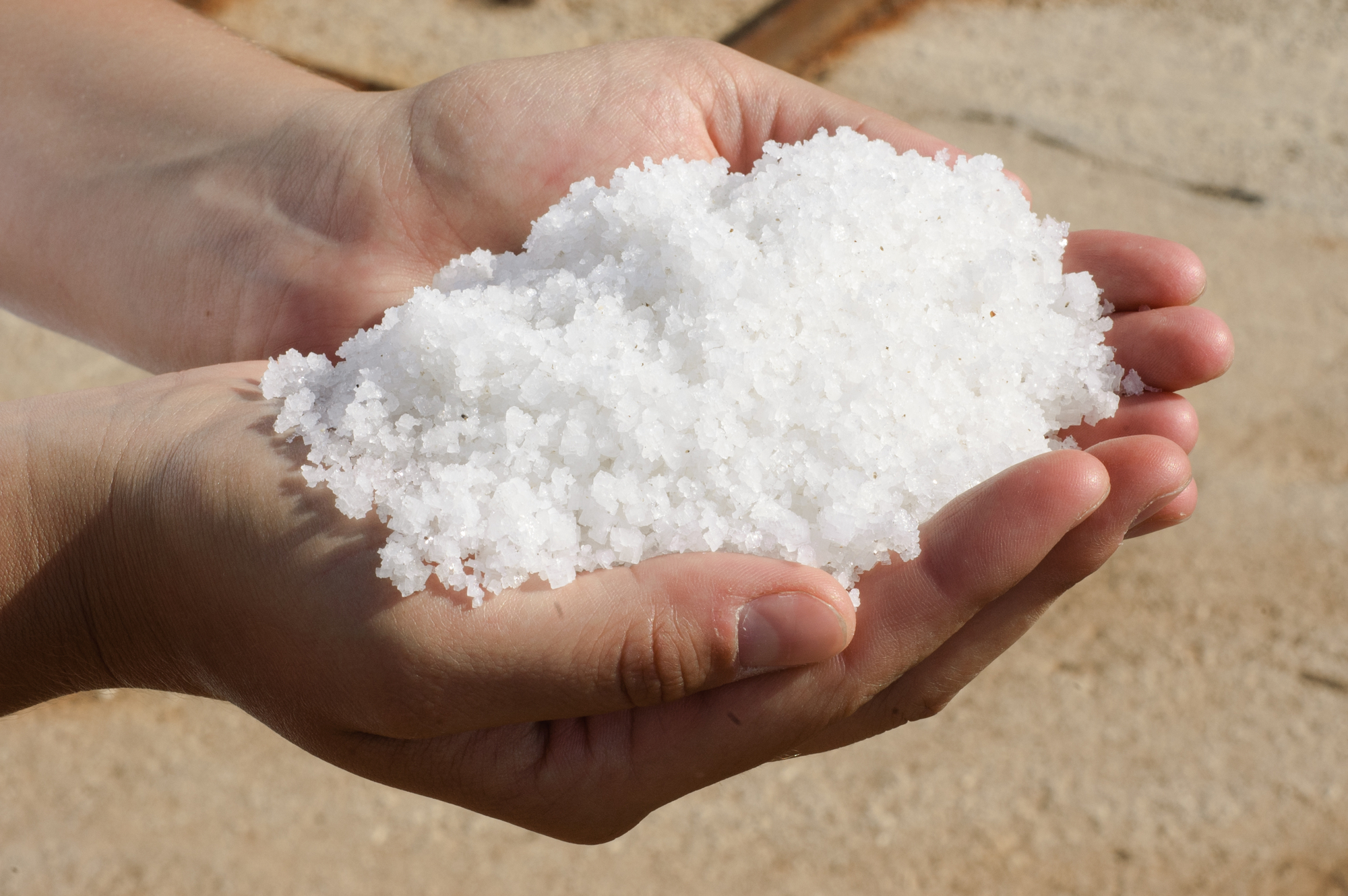What Is Pool Salt?
Pool salt is standard sodium chloride (NaCl) but is just table salt in a different form. The main difference is that pool salt is coarser and comes larger or cut. It can be a vital part of swimming pool maintenance.
Saltwater chlorine generators use pool salt to create chlorine to sanitize your pool. When salt is added to your pool’s water, it dissolves and breaks into chlorine and sodium ions. Using pool salt with saline chlorination systems lets swimming pool owners disinfect their pool water in a more natural and environmentally friendly approach instead of using pool chlorine products.

Types of Pool Salt
While pool salt and table salt are both sodium chloride (NaCl) forms, pool salt has unique properties that make it better suited for use in pools. There is more than one type of pool salt, and each type is collected and refined differently. No matter which pool salt you choose, ensure you purchase a food-grade, pool-grade, granulated, evaporated, non-iodized salt that is at least 99.8% pure sodium chloride (NaCl). Additionally, ensure your chosen pool salt does not contain anti-caking agents since it can discolor your swimming pool’s fittings and surface finishes.
Mined Salt
Mined salt is often recommended over other salt varieties. Since mined salt doesn’t come from seawater but comes directly from salt mines, it is purer and will cause fewer problems for your swimming pool.
Mined salt is very high quality and contains between 95% and 99% sodium chloride; however, it can cost a bit more and must be added to your pool properly.
Solar Salt
Solar salt is produced by companies that divert seawater into a holding area for the sun to evaporate the water eventually. This type of salt contains bacteria and must stay in the sun for an extended period, so the heat and high salt level will kill the bacteria. The main concern with solar salt is that it often contains organic impurities, such as dead bacteria and microscopic dead shrimp, that make your pool filter work harder to keep things running smoothly.
Mechanically Evaporated Salt
Like solar salt, mechanically evaporated salt comes from seawater, but an artificial heat source instead of the sun is used to purify the salt and kill bacteria. Mechanically evaporated salt contains fewer organic contaminants than solar salt.
The downside to mechanically evaporated pool salt is that its purity level isn’t very high, and it often contains minerals, especially calcium, that can damage your pool chlorinator or stain the concrete in concrete pools.
Benefits of Using Pool Salt Instead of Chlorine for Chlorinating Your Pool
Pool water chlorinated with salt has many benefits over water chlorinated with traditional chemical chlorine. Benefits of using pool salt instead of chlorine include:
- Harsh pool cleaning chemicals and irritants are eliminated when you use pool salt.
- Pool salt is more natural and environmentally friendly.
- Pool salt lowers salt levels and creates a clean, safe swimming environment without using harsh chemicals.
- Unlike traditional chemical chlorine, pool salt doesn’t cause red eyes, dry or itchy skin, or green hair.
- Pool salt won’t bleach pool liners or fade swimwear like traditional chemical chlorine.
- Pool salt is safer for children and pets
- When using pool salt, you eliminate the need for chemical chlorine around your house and yard.
Ensure Your Pool Has the Correct Level of Pool Salt
The ideal salt level for a swimming pool is between 2,700 and 3,400 ppm, and the optimal salt level is 3,200 ppm. Usually, you won’t need to add salt after you’ve added the initial amount of pool salt to your pool when you fill it or at the start of the pool season. Your salt water generator will continuously use the salt to generate chlorine through the electrolysis process, and then the chlorine created will sanitize your pool.
While pool salt doesn’t evaporate, it can get diluted when you add fresh water or it rains, so it’s essential to test your pool water and salt levels after heavy rainstorms or fresh water.
Calculating How Much Pool Salt to Add to Your Swimming Pool
To calculate how much pool salt you need to add to your swimming pool, use this formula:
- Your Pool Water in Gallons * 8.35 * (0.0032 – Your Current Salt PPM/1,000,000)
For example, if you have a 10,000-gallon pool and your current salt PPM is 1,400 PPM, you’ll need to add 167 pounds of pool salt to bring your salt levels up to 3,200 ppm, and your math should look like this:
- 10,000 * 8.35 * (0.0032 -1,400/1,000,000)
- 10,000 * 8.35 * (0.0032 – 0.0014)
- 10,000 * 8.35 * 0.0018 = 167 pounds
